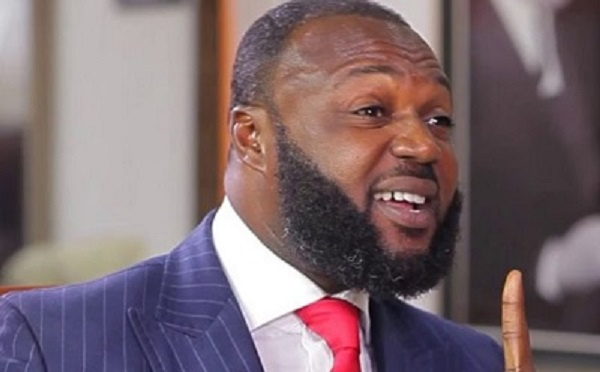Capital Bank case: High Court rejects settlement between Ato Essien and State
State Prosecutors have accused the Founder of the bank, William Ato Essien, of causing the insolvency of the bank by stealing about GH¢200 million of a GH¢620 million liquidity support given to the bank by the Bank of Ghana (BoG).

An Accra High Court presided over by Justice Eric Kyei Baffour has rejected the terms of settlement between the state and the founder of defunct Capital Bank, William Ato Essien.
The court was expected to deliver its judgment in the three-year trial today, December 1, 2022.
But it was informed that the first accused person, William Ato Essien had reached an agreement with the AG’s department to pay an amount of Ghc 90 million as restitution to the state.
According to the document of the agreement that was filed on Wednesday, November 30, 2022, Ato Essien who has also now pleaded guilty, has agreed to pay GHc 30 million on or before December 1, 2022, and the remaining GHc 60 million will be paid within 1 year.
The move, both parties argued was based on section 35 of the Courts Act, 1993 (Act 459), which states that “Where a person is charged with an offence before the High Court or a Regional Tribunal, the commission of which has caused economic loss, harm or damage to the State or any State agency, the accused may inform the prosecutor whether the accused admits the offence and is willing to offer compensation or make restitution and reparation for the loss, harm or damage caused.”
But the trial judge had issues to raise concerning the settlement arrangement.
In his ruling, Justice Kyei Baffour noted that the accused person should be made to refund the money at the current exchange rate, since at the time Ato Essien took the money in 2015, the cedis to dollar exchange rate was at Ghc3.79 pesewas. He adds that if the agreement is to be accepted in its current form, it would mean people who had committed crimes would be made to profit from it.
“It should not be made to appear that he has outwitted the state in the commission of a crime,” he said.
He also ruled that the case did not fall under Section 35 of Act 459 because the money the accused persons are alleged to have stolen, does not belong to the state, but rather to the bank and depositors of the bank.
“It is my candid opinion that section 35 is not applicable to the case for the first accused person to enter into a settlement with the prosecution,” he said.
He, therefore, adjourned the trial to December 13, 2022, to allow the parties to discuss the exact amount to be paid and to address the court on whether section 35 is applicable in this case.
Background
Capital Bank was one of the first banks to fold up during the start of the financial sector clean-up by the Bank of Ghana in 2017.
State Prosecutors have accused the Founder of the bank, William Ato Essien, of causing the insolvency of the bank by stealing about GH¢200 million of a GH¢620 million liquidity support given to the bank by the Bank of Ghana (BoG).
Aided by Fitzgerald Odonkor, Ato Essien is alleged to have transferred an amount of GH¢120 million of the liquidity support to All-Time Capital Limited, an investment management and advisory firm.
Dr. Nettey is also being accused of assisting the two officials of the collapsed bank to dishonestly withdraw GH¢130 million of the bank’s funds to set up Sovereign Bank.
Ato Essien was originally charged with eight counts of stealing, eight counts of money laundering, and three counts of conspiracy to steal, making it a total of 19 counts.
But, Ato Essien who was also accused of same offences with Kate Quartey-Papafio was also acquitted and discharged on three counts of the charges, which means they are left with 16 counts against him.
Tetteh Nettey, who was the MD of Management Services faces two counts of stealing, two counts of money laundering and two counts of conspiracy to steal, making his a total of 6 counts.
Managing Director of the Bank, Fitzgerald Odonkor, on the other hand, is charged with seven counts of abetment of crime, namely stealing.
The state estimates that the accused persons have misappropriated GHC 262,500,000.00.


